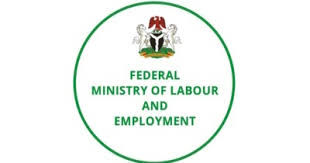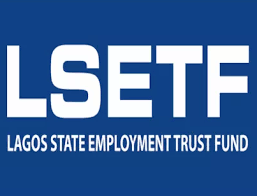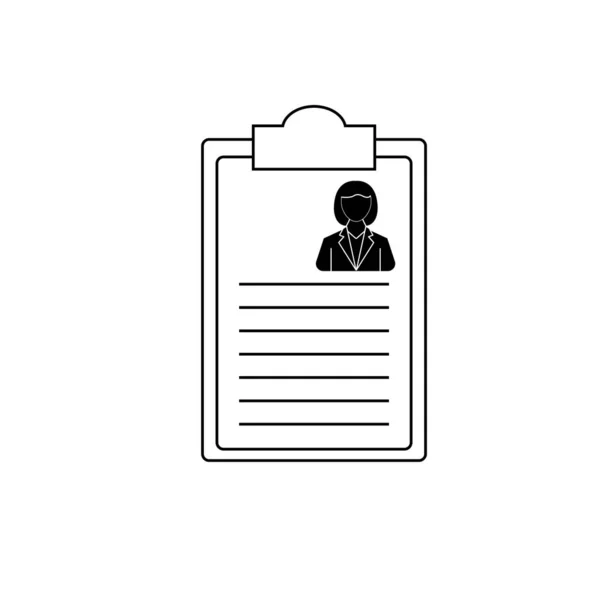The Federal Ministry of Labour and Employment plays a vital role in shaping the economic and social framework of any nation. As we move into 2025, the Ministry remains a cornerstone of Nigeria’s efforts to promote employment, safeguard workers’ rights, and create sustainable development strategies that benefit both employees and employers. This article provides an in-depth look into the Federal Ministry of Labour and Employment in 2025, its policies, objectives, and the pivotal role it plays in the country’s economic growth.
READ: National Directorate of Employment 2025 – WHAT YOU NEED TO KNOW
What is the Federal Ministry of Labour and Employment?
The Federal Ministry of Labour and Employment is a key government entity in Nigeria, responsible for regulating labor relations, ensuring job creation, and enforcing employment standards. It serves as a bridge between workers, employers, and the government, ensuring that the nation’s workforce is protected while fostering a conducive environment for businesses to thrive.
The Ministry operates through various departments and agencies that oversee labor laws, industrial relations, skills acquisition, and job creation. It also collaborates with international organizations such as the International Labour Organization (ILO) to align Nigeria’s labor policies with global standards.
Key Objectives of the Ministry in 2025
In 2025, the Federal Ministry of Labour and Employment is poised to tackle critical challenges in the labor market while striving to achieve its long-term goals. These objectives include:
- Job Creation: With unemployment being a major issue in Nigeria, the Ministry aims to create jobs through private-sector partnerships, vocational training programs, and entrepreneurship initiatives.
- Industrial Harmony: Promoting peaceful labor relations remains a top priority. The Ministry is focused on mediating disputes between employers and employees to prevent strikes and foster productivity.
- Skills Development: To address the skills gap in the job market, the Ministry is investing heavily in vocational education and training programs.
- Workers’ Welfare: Ensuring that workers’ rights are protected, including fair wages, safety standards, and access to social benefits.
- Digital Transformation: In 2025, the Ministry plans to leverage technology to improve service delivery, monitor labor market trends, and provide online resources for job seekers and employers.
SEE: Nigeria Police Recruitment 2025: How to Apply, Requirements & More!
Federal Ministry of Labour and Employment Abuja Address
The Federal Ministry of Labour and Employment has its headquarters in Abuja, the capital city of Nigeria. This central location ensures accessibility for workers, employers, and stakeholders across the country. If you need to visit the ministry for inquiries, submissions, or other official matters, here is the address:
Address:
Federal Ministry of Labour and Employment
Federal Secretariat Complex, Phase I
Block D, 2nd Floor
Central Business District,
Abuja, Nigeria.
The Abuja office serves as the main operational hub for the ministry, handling national-level labour policies, industrial relations, and collaboration with international organizations such as the International Labour Organization (ILO). For inquiries or assistance, you can visit the office during regular business hours.
Federal Ministry of Labour and Employment Website
The official website of the Federal Ministry of Labour and Employment is a valuable resource for both citizens and organizations. It provides updates on policies, services, and programmes that promote employment, social security, and workplace safety. You can access forms, reports, and other documents directly from the website.
Website: https://labour.gov.ng
The website is user-friendly, ensuring seamless navigation for visitors. It includes sections for news updates, labour laws, job creation initiatives, and more. Employers and job seekers can also find helpful resources that align with the ministry’s mission of fostering a sustainable and productive labour force.
Federal Ministry of Labour and Employment Recruitment
Recruitment into the Federal Ministry of Labour and Employment is a sought-after opportunity for many Nigerians. Working with the ministry offers a platform to contribute to national development while enjoying competitive benefits and career growth.
The ministry typically announces recruitment exercises through its official website and reputable national newspapers. Here are some key points to note about the recruitment process:
- Eligibility: Applicants must be Nigerian citizens and meet the specific qualifications outlined in the job announcement.
- Application Process: The application process is usually conducted online via the ministry’s website or a designated recruitment portal.
- Positions Available: Recruitment spans various roles, including administrative officers, labour inspectors, legal officers, and IT specialists.
To stay updated on recruitment opportunities, regularly check the ministry’s website or subscribe to their newsletter. Avoid falling for scams by ensuring all information comes from verified sources.
Pro Tip: Recruitment into federal agencies in Nigeria is often highly competitive. Prepare thoroughly by tailoring your CV to the job description and practising for assessments.
New Minister of Labour and Employment
Leadership plays a pivotal role in shaping the policies and direction of the Federal Ministry of Labour and Employment. In recent developments, the Nigerian government appointed a new Minister of Labour and Employment to oversee the ministry’s operations.
As of [Insert Date], the new Minister of Labour and Employment is [Insert Name]. The minister is tasked with addressing pressing issues such as unemployment, labour disputes, and compliance with workplace regulations. With Nigeria’s labour market facing challenges like job creation and skill development, the new minister’s agenda is crucial for economic growth and stability.
Federal Ministry of Labour and Employment Lagos Office Address
In addition to its headquarters in Abuja, the Federal Ministry of Labour and Employment has regional offices across the country, including Lagos, Nigeria’s commercial capital. The Lagos office serves as a regional hub for labour-related matters, catering to the needs of businesses, workers, and unions in the region.
Address:
Federal Ministry of Labour and Employment
Federal Secretariat, Ikoyi,
2nd Avenue Road,
Ikoyi, Lagos, Nigeria.
The Lagos office is essential for addressing employment disputes, workplace inspections, and other labour-related activities in the southwestern part of the country. If you’re based in Lagos, this office is your go-to location for ministry-related inquiries.
Services Offered by the Federal Ministry of Labour and Employment
The Federal Ministry of Labour and Employment provides a wide range of services aimed at promoting employment, protecting worker rights, and fostering industrial harmony. Some of its key services include:
- Job Creation Initiatives: The ministry collaborates with private and public sectors to create job opportunities for Nigerians.
- Skills Development: Through vocational training and skill acquisition programmes, the ministry equips workers with skills for the modern labour market.
- Labour Dispute Resolution: The ministry mediates disputes between employers and employees, ensuring compliance with labour laws.
- Workplace Safety: It enforces occupational health and safety standards to prevent workplace accidents and injuries.
- Social Security Programmes: The ministry designs and implements programmes to support workers, such as pensions and insurance schemes.
Why the Federal Ministry of Labour and Employment Matters
The Federal Ministry of Labour and Employment is critical to Nigeria’s socio-economic development. By regulating the labour market, the ministry ensures fair treatment for workers while fostering a conducive environment for businesses to thrive. Its policies and programmes directly impact millions of Nigerians, making it a cornerstone of national development.
Contact Information for the Federal Ministry of Labour and Employment
Below is a summary of essential contact details for the Federal Ministry of Labour and Employment:
- Headquarters Address:
Federal Ministry of Labour and Employment
Federal Secretariat Complex, Phase I, Block D, 2nd Floor,
Central Business District, Abuja, Nigeria. - Lagos Office Address:
Federal Ministry of Labour and Employment
Federal Secretariat, Ikoyi,
2nd Avenue Road, Ikoyi, Lagos, Nigeria. - Website: https://labour.gov.ng
For more specific inquiries, visit the website or contact the ministry through its official channels.
Major Policies and Programs in 2025
1. National Employment Action Plan (NEAP)
The NEAP 2025 is a flagship program designed to combat unemployment and underemployment. The plan includes:
- Partnerships with private-sector employers to generate job opportunities.
- Promotion of youth entrepreneurship through start-up funding and mentorship programs.
- Investment in agribusiness, renewable energy, and technology sectors to create sustainable employment.
2. Labour Market Information System (LMIS)
The LMIS is a digital platform that provides real-time data on job opportunities, skill demands, and labor market trends. In 2025, the Ministry aims to expand LMIS to rural areas, ensuring inclusivity and accessibility for all Nigerians.
3. Industrial Relations Framework
With the rising number of labor disputes, the Ministry has updated its industrial relations policies to focus on dialogue and arbitration. The Alternative Dispute Resolution (ADR) mechanism will be strengthened to resolve conflicts efficiently.
4. Occupational Health and Safety (OHS) Standards
In 2025, the Ministry is intensifying its efforts to enforce workplace safety regulations. Employers are required to adhere to strict safety protocols, ensuring that workers operate in a hazard-free environment.
5. Social Protection Programs
The Ministry is collaborating with other government agencies to provide social safety nets for vulnerable populations. Programs like conditional cash transfers and unemployment benefits are being expanded to support low-income workers.
Challenges Facing the Ministry in 2025
Despite its ambitious plans, the Federal Ministry of Labour and Employment faces several challenges, including:
- High Unemployment Rates: Nigeria’s population growth outpaces job creation efforts, making unemployment a persistent issue.
- Informal Sector Dominance: A significant portion of Nigeria’s workforce operates in the informal sector, which is difficult to regulate and provide benefits for.
- Limited Funding: Budget constraints hinder the Ministry’s ability to implement large-scale programs effectively.
- Infrastructural Deficits: Poor infrastructure affects the implementation of vocational training and other employment programs.
The Role of Technology in Labour and Employment
Technology is a game-changer for the Federal Ministry of Labour and Employment in 2025. The adoption of digital tools allows the Ministry to:
- Streamline Administrative Processes: Online platforms reduce bureaucracy, making it easier for workers and employers to access services.
- Enhance Data Collection: Accurate labor market data helps the Ministry design targeted policies.
- Promote Remote Work: With the rise of remote work, the Ministry is updating labor laws to protect workers in the digital economy.
Collaborations with International Bodies
The Federal Ministry of Labour and Employment continues to work closely with organizations like the International Labour Organization (ILO) and the World Bank. These partnerships provide technical expertise, funding, and best practices to help Nigeria achieve its labor market goals.
Future Outlook: Labour and Employment Beyond 2025
Looking ahead, the Federal Ministry of Labour and Employment aims to build a resilient workforce that is adaptable to the demands of the 21st-century economy. Key focus areas include:
- Green Jobs: Promoting employment in renewable energy and environmental conservation.
- Gender Equality: Addressing gender disparities in the workplace to ensure equal opportunities for women.
- Youth Empowerment: Expanding programs that target Nigeria’s young population, which constitutes a significant portion of the labor force.
In conclusion, the Federal Ministry of Labour and Employment in 2025 is at the forefront of Nigeria’s economic development. Through strategic policies, innovative programs, and international collaborations, the Ministry is working to create a more inclusive and prosperous labor market.



